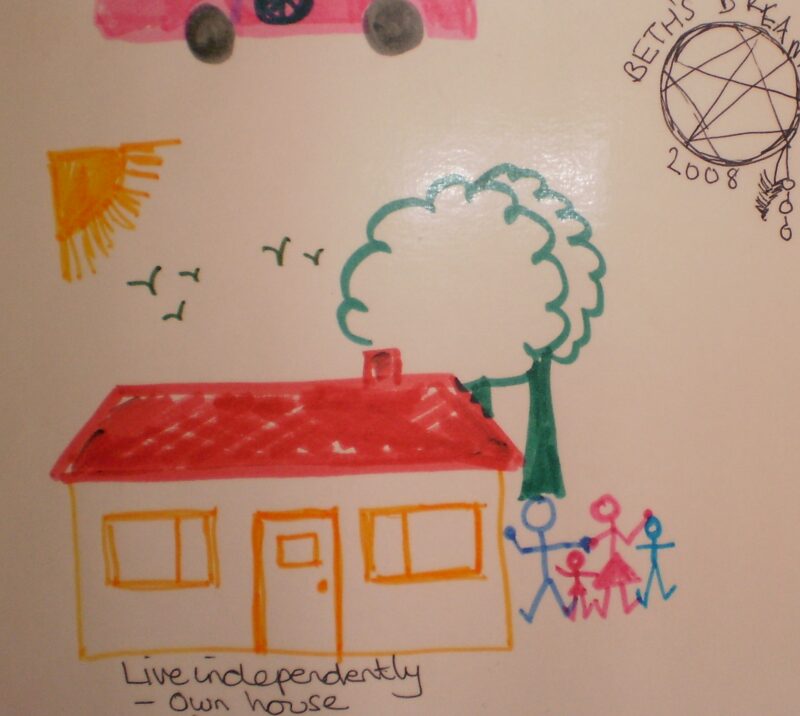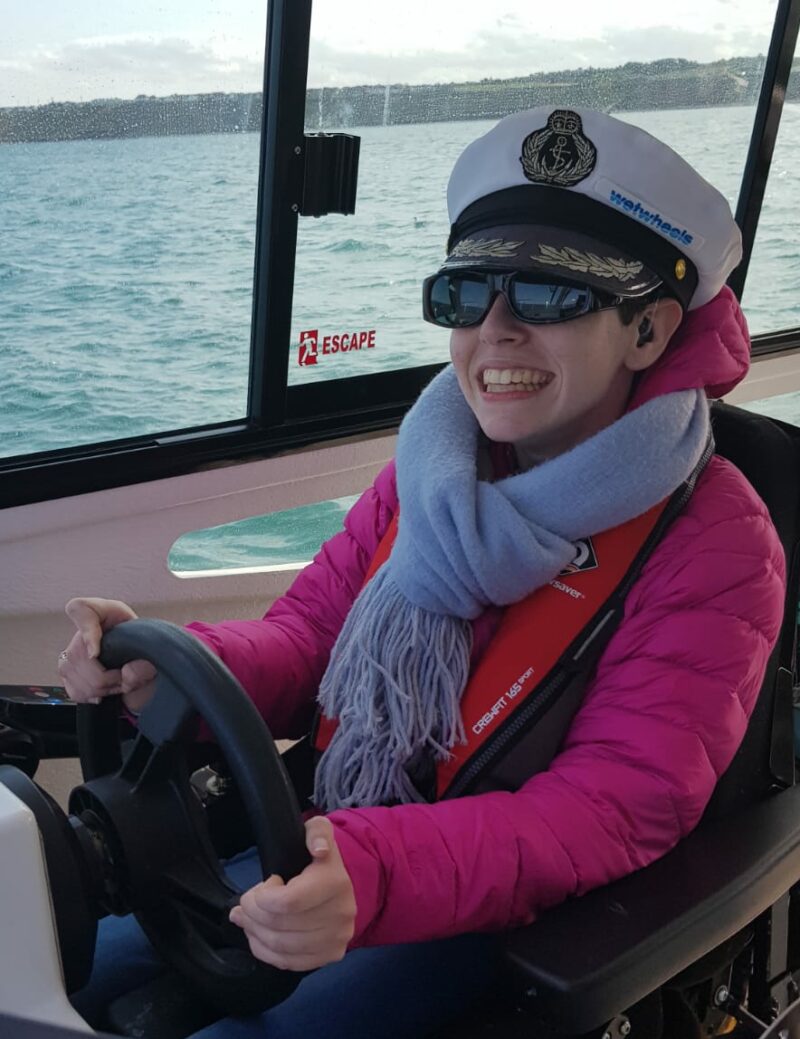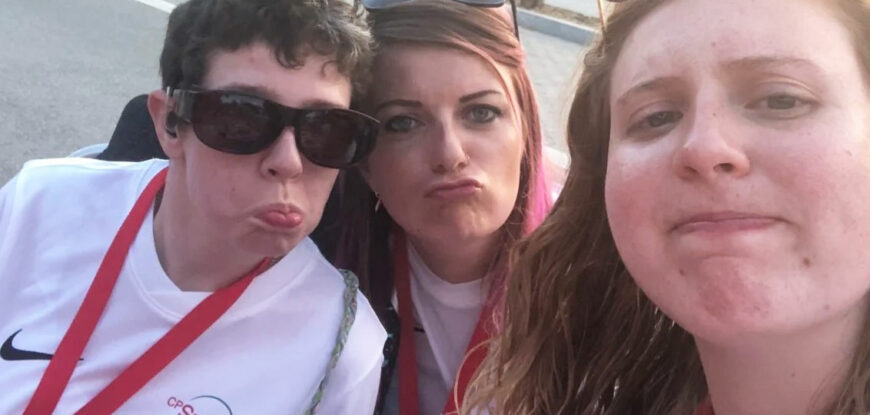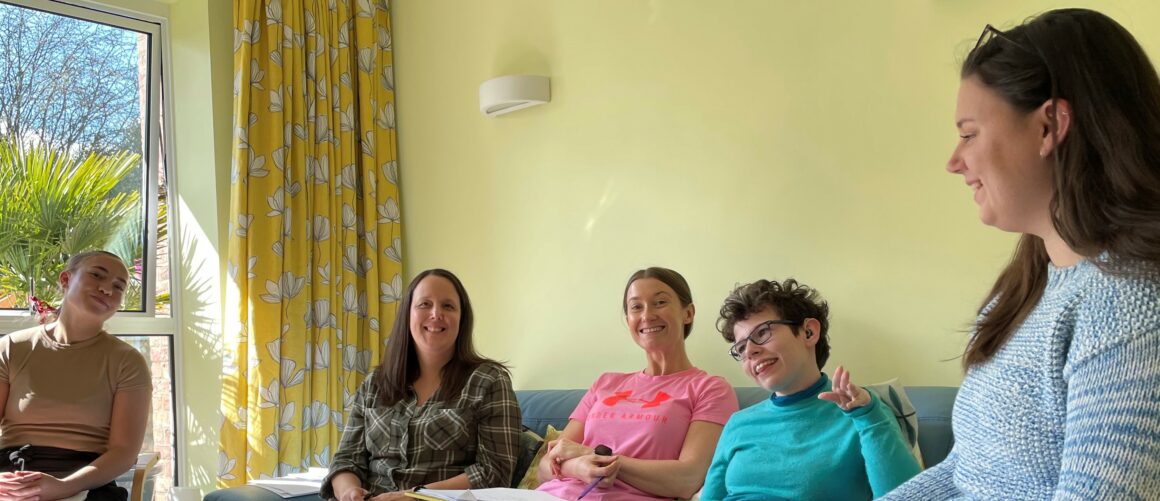I’ve dreamed for as long as I can remember of having my own home and living independently. But what does that really mean if like me you need around-the-clock support? It definitely means having some leadership skills for starters.
It’s never too soon to start getting leadership experience

It is unlikely any young person leaving home is a ‘finished product’. I know I am still not the done deal. Whether you are moving into university halls, shared accommodation or your own home it is a big step. Most young people continue to have support, advice and help as they venture into the world of independent living. This might be at home or work. For most people, the family home might remain a safe haven for many years. Even after we move out, it is somewhere to return to and often to be pampered. Reflecting back this is also where the seeds of my leadership were sown, and start to grow. Seeing how Mum managed my assistants as I was growing up set the standards I aim to achieve.
All Chief Execs have teams that support them
 As the Chief Executive of my own life, or the captain of my ship, I want to be the best I can be. If I was a business leader then I would have worked my way up to the position. And on this journey gained valuable leadership skills along the way. Instead, I’ve had to learn on the job. I often feel I was thrown in the deep end. But what I have learned is that no (wo)man is an island, great teamwork can make the job easier. I’ve now really started to appreciate that others have skills I don’t, or can do things more quickly. And, that it is OK to let them excel in these areas under my direction. I’m allowed to ask for help and don’t need to feel frustrated that I cannot do everything myself. And, receiving this help with good grace is not a sign of weakness, but instead a strength that I’m in control of my life.
As the Chief Executive of my own life, or the captain of my ship, I want to be the best I can be. If I was a business leader then I would have worked my way up to the position. And on this journey gained valuable leadership skills along the way. Instead, I’ve had to learn on the job. I often feel I was thrown in the deep end. But what I have learned is that no (wo)man is an island, great teamwork can make the job easier. I’ve now really started to appreciate that others have skills I don’t, or can do things more quickly. And, that it is OK to let them excel in these areas under my direction. I’m allowed to ask for help and don’t need to feel frustrated that I cannot do everything myself. And, receiving this help with good grace is not a sign of weakness, but instead a strength that I’m in control of my life.
Developing leadership skills ahead of peers
Recently I had a conversation with a same-age friend starting a Ph.D. We agreed that their life experiences had not yet included the opportunity to recruit and train staff. They didn’t need to lead and direct a team on a daily basis and manage a staff budget. This made me chuckle, in many ways I’m the one viewed by society as needing ‘extra help’! Yet I’m the one expected to have leadership skills beyond my years. And, this skill set is something for which there is no formal training. Nor are there suitable courses for Personal Assistants, which is why I’ve developed my own training modules.
Moving out can be overwhelming and exciting
I couldn’t wait to live independently. But some things have been a roller coaster of a ride, like learning the leadership skills needed to manage my team. I can definitely agree with some research I found regarding young people with disabilities living independently. The interviewees were somewhat overwhelmed by the prospect of taking on their own care package, yet they were looking forward to being in control of their lives. This is a real dichotomy for so many people, how to get the experience, knowledge and leadership skills to be ready to move forward. It is also important to recognize that decisions are taken in the here and now, and how well things work, may affect what happens during the rest of your life.
What leadership skills are needed?
I’ve lots of my own ideas, but I’ve also done a fair bit of reading. All the ‘experts’ seem to settle on 6 key skills to be a leader. These leadership skills weren’t for disabled young people but for everyone in general, but they mirror what I’ve found. These are listed below in no particular order, mainly because depending on the situation each becomes more important at one time or another.
1. (Being strategic) Begin with the end in mind – have a vision, something you are passionate about
For me, this was where my dreams process has really helped. It gave me the confidence to be bold enough to think outside the box and decide on what I wanted for my long-term future. The result was I was then able from an early stage to work hard to deliver against my goals. My dreams journey is still only partially complete after 13 years. I do live independently (with a team of personal assistants) and have done so since 2013. In 2018 I moved into my own lifetime home to live independently. This was another dream, to design and build a house to meet my needs to be independent whilst supported by a team of assistants.
2. (Planning and delivery) Unpick your vision, really understand what you need to do, then plan
The very first dreams workshop I attended gave me the template to plan any goal, no matter how big or small. Over time I’ve developed and refined this planning process to be one that suits me. I start with the end goal, understand all the things I will need to learn or resource and who will help. Making lists is for me vital, visualizing the goal on a big concept board helps, but do what suits you best. For me when I create often over months my (very) detailed plan I then feel confident to step out and make a go of things!
3. (People management) The tricky one, finding the right people and then bringing them with you
If you are going to live independently then I now know recruiting the right team is an important starting point. Your team needs to buy into your dreams. But more than that they need to be trained to empower you and want you to succeed. Hopefully, they will be your biggest cheerleaders. I’ve made some great decisions on who to employ, but occasionally got it wrong too. I’ve now got a robust process for screening, interviews and selection. To me, it is important to build a stable team, one that will provide continuity of support. And, here I think one of the keys to bringing people with you is the training you can provide. We all need a shared understanding of what is expected in the role. I want us to work together as equals, I really value their input into my life. Then if I’ve got this right I’ve found people rise to help me achieve my challenges.
4. (Change management) Be able to reflect and review your plan, then change accordingly
I’ve discovered the road to success is often about two steps forward and one step back. There are always trip hazards along the way, things don’t always go as planned. My advice is to remember when you are planning for success always to consider what happens if things don’t work out as planned. Considering the pitfalls at the beginning has definitely helped me in the longer term. If things go less well than anticipated then I’ve had to learn to speak out. I’ve discovered I need to be brave enough to recognize when things need to change. Experience means I now have both formal and informal mechanisms in place to be able to do this. One very important thing for me is to be able to summon the right help at any time of the day or night if I feel unsafe or vulnerable.
5. (Communication) Being able to share your hopes, dreams, aspirations and the practicalities of life
Communication is at the core of everyday life, having dysarthric speech and using a communication aid can be scary for newbies joining my team. They tell me they worry about not being able to understand me. Being able to motivate, lead and direct my team by having the skills and knowledge to be comfortable in what I want, and need, is essential. I’ve discovered the best way for me is to do both formal and informal training with my team. Learning on the job is a big part of getting good experience. Some stuff is subtle and done by modelling. At other times we sit down and do either 1-1 or team sessions. Training includes how to support others to communicate with me, active listening, giving and receiving feedback, unconscious communication and teamwork (to name a little bit of what we do). Within a few shifts my team feedback that their fears of being unable to understand me were unwarranted.
6. (Passion and influence) Retaining your loyal team through the way in which you support them in supporting you
Recruitment and training are time-consuming and costly. When you have the right team members you also want to know how to support them to want to continue to be with you. I have both passion and a vision for my future, I learn and grow working with others. What I love to hear is a team member explaining with enthusiasm their role to others. I recognize some people will only be with me a short time, by this I mean 12-18 months. These team members have used the experience of working with me to step out on their own journey. PAs have gone on to train as counsellors, teachers, occupation and physiotherapists, psychologists and inclusive education specialists. There are others that are (hopefully) making their career with me and I value their steadfast and enthusiastic ongoing support in delivering my vision.
Gaining practical knowledge and experience – key areas to consider
To my mind what is missing from this list is the practical ways to get the knowledge and experience to succeed with these skills. All 6 skills sound easy, but in my experience it is stressful and tiring recruiting and training new people. As humans we can all make mistakes.
Recognizing needs change
If I’d been asked when I started out living independently what leadership skills I thought I’d need nearly a decade later I wouldn’t have known. Now I can say these are confidence, decision-making skills, self-determination, assertiveness and communication competence. This can be broken into 6 key areas:
-
- Understanding how to direct your support and build relationships.
- Developing emotional intelligence by knowing what is appropriate behavior for yourself and others, and recognizing the signs of stress, then how to take action.
- People management skills starting with recruitment, training and development of your support teams. Then how to handle day-to-day living with staff around 24/7, setting employer/employee boundaries, and knowing how to deal with poor quality support.
- Managing to have ‘me’ time whilst directing team members to do (routine) tasks.
- Dealing with conflict and challenging situations including staying safe, when to seek help, where to seek employment law expertise.
- Then there are a whole host of things that are independent living skills, your knowledge, skills and experience of these will be vital to direct your team.
Learning to lead
One of my Mum’s favorite books, when I was in my teens, was ‘Transition Strategies for Adolescents and Young Adults Who Use AAC’ edited by David McNaughton and David Beukelman. Sadly, this now appears to be out of print.
One of the guiding principles from the McNaughton and Beukelman book is:
“The transition for young people who use AAC is facilitated through a lifelong learning process that begins early and continues across the life course. For young people who use AAC to make the transition to adult (health) services, they and those who support them or provide such services need to work together to facilitate a smooth transition”
But having been through this process I’ve discovered we are still groundbreaking when working with many professionals. There is a lot of rhetoric around placing the disabled person at the centre of decision-making. Some service providers appear to listen but think they know best. Others make notes but are not the true decision-makers, they report upwards or sideways to someone else to form the opinion. As a result, I now believe, that where we are able, this principle should be amended to “……we need to learn to guide both those working together to support us and those who provide such services to facilitate a smooth transition”. There is a subtle difference. By we I mean me! We are the only people who really know what we need. Until disabled people are truly central to the process and given the opportunity to take control then we will have less of a say in what we want and need for our own independent futures.
Observe, reflect and trial to develop leadership skills
My residential school did a good job in preparing me for some practicalities of living independently, and I had some experience directing support staff. I loved to listen to the staff in the home-living area discussing and sharing their workload. Understanding how they asked each other to take on jobs, and how they juggled everything. But in the real world there has been so much more to learn, my advice is to start early by watching others at work (OBSERVE). Then seeing what you think works well and what might not work so well (REFLECT). Finally trying when you can to practice these skills in a safe environment (TRIAL). Mum always knew when I’d been observing and reflecting at school, I’d open discussions with different phrases, make suggestions in alternate ways and then ask her for her feedback on these conversations. And, this doesn’t stop today! I still use the same process, learning every day how to improve my communication skills.
The beautiful dance
Teamwork in my book doesn’t mean telling people every little thing. I work with my team so we anticipate together what I want to do next. It’s like being with a dance partner. When learning the steps of a dance routine you are conscious of every movement and check with each other. Once you are comfortable with the dance steps, and practice more, you develop trust. Then the dance unconsciously flows in a beautiful rhythm.
“Working as a team means anticipating the flow of the routine, without constant decision making by me, questioning by them, and discussion. Especially when I’m tired”.
(Moulam, 2014).
You might also find the following of interest:
Pathways to leadership webinar
Employing personal assistants as a teenager
Starting university with a team of personal assistants
Personality matters – recruiting personal assistants
Appointing a team leader, or not!
It’s all in a name: Employing personal assistants



If you found this interesting or
helpful please feel free to share.